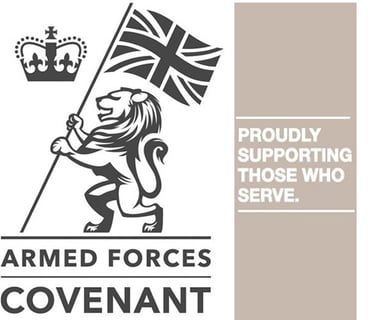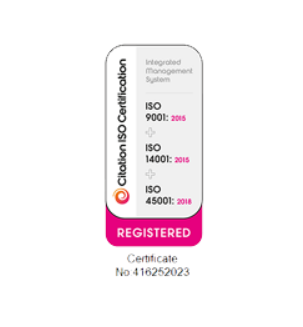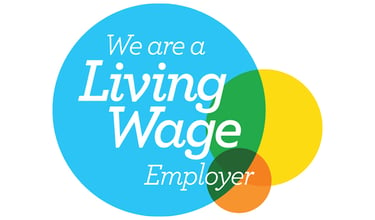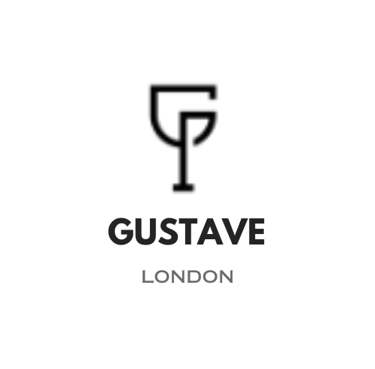Can I refuse to have my bag searched?
If you spend any time in shops, stadiums or nightclubs in Britain, sooner or later someone will ask, “Mind if I have a quick look in your bag?” It’s a fair question to ask the next one in return: can you refuse? The answer, like so much in security, is “it depends”. It depends who’s asking, where you are, and under what power the request is being made. We’ve spent years working with retailers, venues and corporate sites across London, and honestly: confusion about searches causes more complaints than almost anything else. This piece is our plain‑English, no‑nonsense guide for both the public and for security stakeholders. I’ll demystify when you can say no, when you really shouldn’t, and how good practice keeps everyone safe and respected.


Can I refuse to have my bag searched?
If you spend any time in shops, stadiums or nightclubs in Britain, sooner or later someone will ask, “Mind if I have a quick look in your bag?” It’s a fair question to ask the next one in return: can you refuse? The answer, like so much in security, is “it depends”. It depends who’s asking, where you are, and under what power the request is being made.
We’ve spent years working with retailers, venues and corporate sites across London, and honestly: confusion about searches causes more complaints than almost anything else. This piece is our plain‑English, no‑nonsense guide for both the public and for security stakeholders. I’ll demystify when you can say no, when you really shouldn’t, and how good practice keeps everyone safe and respected.
The short version
If it’s the police exercising a lawful stop-and-search power, you can’t stop the search by refusing consent. Trying to obstruct may be an offence. You should ask “What power are you using?” and you’re entitled to know the grounds.
If it’s private security at a shop, bar, stadium, office or construction site, searches are almost always consent-based. You can refuse, but the likely consequence is you’ll be refused entry or asked to leave.
There are special environments (airports, courts, prisons, certain ports) where searches are effectively a condition of entry imposed by law. You can refuse, but you won’t be allowed in, and obstructing officers can create separate offences.
Security staff (not police) can’t force a search. They may detain you only if they have reasonable grounds to suspect an indictable offence (like theft) and detention is necessary pending police arrival. Even then, they still shouldn’t search your bag without your consent.
Let’s unpack each setting properly.
Police searches: what the law allows
Police stop and search in the UK is governed by several statutes. The big ones you’ll see in day‑to‑day life are:
Police and Criminal Evidence Act 1984 (PACE), section 1. Allows police to stop and search in public places if they have reasonable grounds to suspect you’re carrying stolen goods or prohibited articles (e.g. burglary tools).
Misuse of Drugs Act 1971, section 23. Allows searches if there are reasonable grounds to suspect you’re in possession of controlled drugs.
Criminal Justice and Public Order Act 1994, section 60. In a defined area for a limited time, with an officer’s authorisation, police can search for offensive weapons without individual suspicion.
Terrorism Act 2000, section 47A. Under specific authorisations, police can stop and search without suspicion for terrorism-related purposes.
Schedule 7 to the Terrorism Act 2000. At ports, airports and international rail terminals, examining officers can question and search people and baggage without suspicion for the purpose of determining whether someone is involved in terrorism. Failing to comply can be an offence.
If a police officer is using a statutory power, your consent isn’t required. You can’t stop the search by saying no. You can and should ask them to explain the power and the grounds. The traditional mnemonic GOWISELY reminds officers of what they should tell you: Grounds for the search, the Object they’re looking for, show their Warrant card if they’re in plain clothes, their Identity and station, that you’re entitled to a copy of the search record, the legal power, and that you’re detained for the search. If you obstruct a lawful search, you may commit an offence.
Practical advice if stopped by police:
Stay calm and listen. Ask “What power are you using, and what are the grounds?” You’re entitled to know.
Ask for a receipt or reference number for the search. Keep it in case you want to give feedback or make a complaint later.
You cannot be required to remove more than outer clothing in public; more intrusive searches have extra safeguards and locations.
Don’t physically interfere. If you disagree with the grounds, record details and challenge later through proper channels.
Private security and consent: shops, bars, venues and offices
Outside policing, bag searches in the UK are overwhelmingly consent‑based. Security guards and door supervisors are not given general statutory powers to search. The key legal principles are:
Property owners and occupiers can set conditions of entry. If the condition is “bags will be searched”, you can refuse, but they can lawfully refuse you entry or ask you to leave.
Touching someone or their property without consent may amount to trespass to the person or trespass to goods. Security should never put hands into your bag or on your person without consent.
A “policy” isn’t a law. It’s a condition the venue has chosen. They can enforce it by controlling entry or asking you to leave; they can’t enforce it by forcefully searching you.
Security must not discriminate when deciding who to search. Targeting people because of race, religion, disability, sex or other protected characteristics can breach equality law unless there’s an objective, proportionate reason.
Common scenarios
Retail stores
You’re leaving and the alarm beeps. Staff ask to look in your bag. Again, this is consent-based. A beeping gate alone is weak evidence of theft; combined with observation (e.g. item concealed, packaging discarded), it may add to “reasonable grounds”.
If there are reasonable grounds to suspect theft, security may detain you under “any person’s arrest” (section 24A PACE) until police arrive. That decision must be necessary and proportionate. Even then, they shouldn’t search your bag without your consent; the police will handle that.
Nightclubs, bars and events
Door supervisors often conduct bag checks and pat‑downs as a condition of entry under licensing conditions or venue policy. You can decline, but expect to be refused entry.
Pat‑downs should be same‑sex where possible, explained clearly, and conducted respectfully. You can always opt out and leave.
If prohibited but legal items are found (e.g. e‑cigarette at a festival banning them), the venue may offer “amnesty bins” or bag‑drop, or simply deny entry unless you discard it. Make sure signage is clear in advance to avoid surprise.
If suspected illegal items are found, the usual approach is to refuse entry and call police. Security should not ask you to “admit” anything; they should simply preserve safety and evidence appropriately.
Stadiums and arenas
“All bags subject to search” is a standard condition of entry. Some venues operate bag‑size restrictions. Refuse the search and you won’t get in. That’s not a criminal matter; it’s a condition of the ticket contract and the occupier’s rights.
Offices and corporate sites
Visitor and staff passes often incorporate consent to security screening. You can refuse, but access will be denied or revoked.
For employees, search consent may form part of the employment contract or workplace policy. Refusing may be treated as misconduct or grounds for removal from site. Even then, it’s still consent‑based; the remedy is employment action, not forceful searching.
Special environments with additional legal frameworks
Airports and aviation
Aviation security screening is mandated by law. If you refuse to have your bag screened, you won’t be allowed into the security‑restricted area or onto the aircraft. Persistently obstructing security could lead to police involvement. This is not a “forced search”; it’s a condition of travel imposed by statute and regulation.
What security can and can’t do
Can:
Ask for consent to search bags.
Make entry conditional on agreeing to a search.
Refuse entry or ask someone to leave if they won’t be searched.
In limited circumstances, detain under section 24A PACE if they reasonably suspect an indictable offence and detention is necessary pending police.
Seize prohibited items if the visitor consents or surrenders them as a condition of entry, and pass illegal items to police.
Can’t:
Force a search without consent (unless they are police using statutory powers).
Physically reach into your bag or put hands on you without consent, absent a necessity to use reasonable force to effect a lawful detention.
Demand your ID or force you to provide personal details (again, unless under a specific lawful power, which private security don’t generally have).
Discriminate in who they choose to search.
Privacy, dignity and data protection
A bag search can reveal personal information, medicines, or sensitive items. Good practice demands:
Explain what you’re looking for and why. Keep it brief and specific.
Ask the person to open and handle their own bag while you look, rather than rummaging yourself, unless they consent otherwise.
Avoid unnecessary handling of personal items. Close the bag promptly once satisfied.
Use a screening table in view of CCTV, but consider privacy screens where appropriate. Balance deterrence with dignity.
If you use body‑worn video, display signage and follow your data protection policy. Don’t create a needless record of someone’s private items.
Discrimination and fairness
One of the quickest ways to erode trust is perceived unfairness. To reduce bias and uphold the Equality Act:
Prefer universal or randomised searches in high‑risk settings, clearly communicated to all.
If you must target searches, articulate objective risk factors (bag size, behaviour, entry point) and train staff to avoid proxy profiling.
Track and review complaints. Adjust your approach if you see patterns that suggest unfairness.
What happens if you find illegal items?
For the public: If you’ve inadvertently got something you shouldn’t (a penknife in your carry‑on, for instance), be honest and calm. In many venues, prohibited but legal items can be surrendered or stored. Illegal items are another matter.
For security:
Prioritise safety. Don’t handle suspected weapons beyond what’s necessary to make them safe.
Don’t invite admissions. You’re not interviewing; you’re managing risk.
If you believe an item is illegal to possess, refuse entry, preserve the scene and call police. Maintain a simple chain of custody if safe to do so.
Document your actions factually and contemporaneously.
Common misconceptions
“It’s illegal to refuse a search.” Not generally. It may be unwise in some settings, and it will usually mean no entry, but it isn’t illegal to refuse a consent‑based search.
“Company policy gives us the power to search.” Policy lets you make entry conditional; it doesn’t confer a power to force a search. Only statute does that, and it’s largely reserved for police and specific officials.
“If the gate beeps, we can search the bag.” You can ask; you can’t compel. The beep may contribute to reasonable suspicion when combined with observation, but without more it’s rarely enough to justify detention.
“We can check receipts and bags at will.” You can request; consent is key. If refused, decide whether to allow the person to leave, ask them to leave, or, if you have reasonable grounds of theft and necessity, detain and call police.
Practical scripts for the public
If private security ask to search your bag and you’re not comfortable:
“Is this a voluntary search? If so, I’d rather not. I’m happy to leave the premises if that’s your policy.”
“Can you tell me what you’re looking for? I’m happy to open the bag and move items so you can see.”
“I’m uncomfortable with a pat‑down. I’ll leave instead, thanks.”
If the police ask to search your bag:
“What power are you using, and what are the grounds?”
“Could I have a record of the search, please?”
“I’ll cooperate; I do not consent to unnecessary force.”
A note on recording and complaints
Encourage respectful recording. If someone wants to film the search from a reasonable distance without obstructing, that’s often fine on private land at your discretion. A professional team has nothing to fear from transparency. Also, make it easy for people to give feedback and obtain search records where appropriate. A quick, thoughtful response to a complaint can turn a grumble into goodwill.
Answering the question head‑on
So, can you refuse to have your bag searched?
By private security at a shop, pub, club, office, stadium or festival: Yes, you can refuse. Expect refusal of entry or to be asked to leave. If you’re already on site and suspected of theft or another indictable offence, you may be detained while police attend; security should still not search your bag without your consent.
By police using a statutory power in a public place: You can say you don’t consent, but the search can lawfully proceed. Obstructing is unwise and may be an offence. Ask for the power and grounds and for a record.
At airports, ports, courts, prisons and similar controlled environments: You can refuse, but you won’t be allowed to proceed, and in specific border settings you may commit an offence if you don’t comply with examination powers.
Rights come with responsibilities. For the public, being calm and clear goes a long way. For security teams, professionalism and courtesy are the difference between a smooth search and a scene at the door.
Why this matters to us
We teach our teams the law, yes, but we also teach the human side: how to explain the why, how to offer choices, how to de‑escalate, and how to treat every person like a guest, not a suspect. That’s the difference at Shoreditch Security
Final thought and a friendly caveat
This article is general information for the UK and not legal advice. Laws and guidance evolve, and specific cases can turn on fine details. If in doubt in a live situation, step back, call a supervisor or speak to the police.
Ready to turn searches from a flashpoint into a strength? Whether you run a retail estate, a late‑night venue, a corporate campus or a major event, we can audit your policy, train your team and deploy SIA‑licensed professionals who are ambassadors of courtesy and professionalism. Get in touch today to book a no‑obligation consultation and see the Shoreditch Security difference for yourself.



































